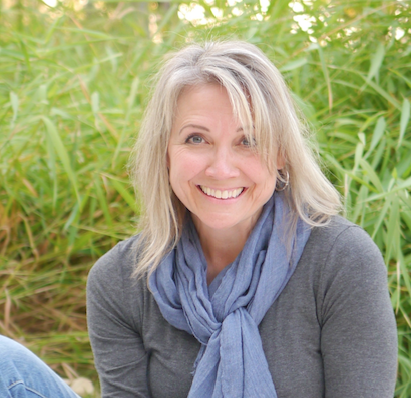“The feelings that hurt most,
the emotions that sting most,
are those that are absurd —
the longing for impossible things,
precisely because they are impossible;
nostalgia for what never was;
the desire for what could have been;
regret over not being someone else;
dissatisfaction with the world’s existence.
All these half-tones of the soul’s consciousness
create in us a painful landscape,
an eternal sunset of what we are.”
― Fernando Pessoa
Sometimes I wonder if life isn’t a series of choices and consequences stitched together with paradoxes.
- We work so we can play.
- We save so we can spend.
- Faith requires belief in things not yet seen.
- Trust, the fortress of relationships, means letting down our guard.
- An ultimate of personal happiness — love — comes through focus on the happiness of another.
And on, and on.
Longing, a frequent condition of our human nature, is also paradoxical.
The yearning for something we want can be both a prison that keeps us from our desire and the very pathway to it.
The secret to determining which way things go lies in three simple questions.
1. What is it I actually want?
Is it this? Or that?
Is it him?
Is it her?
Or is it something I’m missing in my life that those things or that person represent to me?
Some time ago, I had a conversation with a friend who had fallen in love with her counselor. Week after week, here was a man who listened intently, asked sincere questions to establish his own understanding, and wanted the best for his client. Who wouldn’t find herself (or himself) pining for more of that?
As you can imagine, the issues that brought her to his office involved dissatisfaction with her long term marriage relationship, loneliness, and a persistent sense of “having become furniture,” as she explained it to me.
The longer we talked, the more we both could see that there actually was a kind of impossibility (absurdity, as Fernando Pessoa says) in her longing for this particular man — married with a family, a professional who could not become involved with a client without serious and damaging ramifications, someone willing to be a support but not even remotely an option for a life companion.
Day-long thoughts of wishing for a different life consumed my friend. They kept her from following through on therapy assignments; they colored her view of her own partner; they fed a false sense of hope, one that was always tinged with despair.
Her longing became her frustration and her frustration became a prison, shutting her away from the thing she originally wanted the most…a more vibrant and loving relationship with her partner.
This state of being could apply to any longing.
I want to be skinnier.
I want to make friends like he does.
I envy her grace.
I can’t wait till I can quit this job.
If only I’d win the lottery.
If only I were the leader.
What if what we really want is something else, or something buried within the longing? What if it’s something genuinely achievable, but we are tied up by all the pining and wishing to the point that what we desire seems beyond our capacity to make it real?
If I am focused on being skinnier, maybe the truth is that I actually want to feel better in my own shape and more socially confident. Does one necessarily follow the other?
If I’m living for the day I can change jobs, maybe what I primarily want is something else, like more fulfilling time off work. Could it be that dissatisfaction at my workplace is spill-over from dissatisfaction with other challenges and disappointments in my life? What might happen if I stop hating on my job and start addressing problems on other fronts?
The exercise of asking What is it I actually want? is not meant to deflect our attention from elements of our lives that are genuinely troubling or lacklustre — it’s to drill down into some self-honesty about what we desire and what’s totally within our control to change and improve.
Asking the question releases us from “nostalgia for what never was” so we can get my own story arc straight — beginning, middle and end instead of an endless, unfulfilled beginning.
Answering the question helps us discern a wider range of possibilities than the one we’ve settled on, long for, and feel blocked in achieving.
Released from a one-track mind, we can access our imagination and intelligence to answer question #2.
2. If I were to get what I want, what might happen next?
Probably one of the most common storylines in human history and folklore is where wishes come true but don’t bring the happiness that was expected.
Remember the classic tale of the poor fisherman and his wife? One version goes like this:
The fisherman catches a magic, talking fish. It begs to be released back into the sea and offers a reward of three wishes. The fisherman decides to comply. He asks for a mansion for his wife, then lets the fish go and returns to shore empty-handed.
As he rounds the bend to his humble cottage, there, to his amazement, is a grand home and his stunned and deliriously happy wife running to greet him.
“Husband! See what has happened!”
Quickly, the husband reveals the marvelous events of the day and the two set about plotting how they will maximize the value of the wishes.
Feeling hungry, the husband absentmindedly blurts, “I am famished! I wish I had a delicious sausage!”
And, ping, there it is.
The fisherman’s wife is stunned, then swiftly turns angry. She berates her man for being both foolish and selfish. The quarrel escalates and the woman rashly screams, “Oh, I wish this sausage were stuck on the end of your nose!”
And so it is.
Even with a magic fish on their side, getting what they wished for only brought more trouble to this humble couple.
As with most folk stories, we can take a lesson here.
What might happen if you actually DID win the lottery? Would your current financial woes end? Would everything and everyone around you suddenly sync with your needs? Would the money make all your wishes come true?
Undoubtedly, a sudden influx of cash would change your current circumstances. It would lift certain burdens. It would facilitate new options. But, will it do all of the things your longing expects?
More importantly, what does your longing for a longshot windfall mean right now to the way you’re conducting your life? How does your wistfulness influence your perspective and goals?
Which brings us to Question #3:
3. What can I be doing right now to shift my longing into actual reaching for what I say I want?
I watched a disturbing video recently.
It caused me to look hard at myself.
It made me think outside of some attitudes I realized I’d been carefully crafting.
It even brought tears to my eyes.
You see, it stirred the pot of my longing and made it boil.
You can watch the video here, too. Please, do it.
Hint: If you found out you could lose your health and mental capacity at any moment, what might you do (and want) differently?
What do you think?
More than anything, this video moved me to want to stop pining, craving, wishing, yearning, thirsting and hungering for things, relationships and experiences and get busy putting them on the banquet table of my life.
It seems like I am now hyper-alert for ways to do this because on two random occasions recently, I felt the lens on my life spin a very sharp focus and bring some startling clarity.
The first instance was listening to a 90 year old man on his birthday.
Addressing gathered family and friends, he said:
You know, over the years we’ve mostly existed hand to mouth. But when I stand here and look back on it all, I feel like the richest man alive — I’ve got my family and I’ve got how I feel about God. What else matters? You can’t take anything more than that with you.
The second wake-up moment also came from an older gentleman. He said:
You get to a place in your life where you spend a lot of time reflecting on the past because the future just keeps getting shorter.
My epiphany?
Longing stretches our strength into unknown tomorrows and depletes it.
Live now.
In all our sighing for what we don’t have now, we lose stamina to breathe in all that surrounds us, all that is already good and already possible.
Longing is absurd.
It is painful.
It burns up and cools our will like a premature sunset of our lives.
It bars us from seeing the way forward.
It imprisons us and obscures our path.
Let’s not waste another minute wanting.
Let’s ask the hard questions.
What is it I actually want?
If I were to get what I want, what might happen next?
What can I be doing right now to shift my longing into actual reaching for what I say I want?
Even a brief pause in our dissatisfaction will allow us time to evaluate what we actually believe will satisfy our longing.
Longing sets the destination. That is good.
Staying there diminishes us — not good.
Asking careful questions refines our quest.
Answering them places our feet on a path headed toward happiness.
That is the difference between a full life and the longing for it.

Call to Action and Final Word
Share this article with someone you care about.
Share the “SHOW UP” video.
Visit www.ruckuslist.com and have a look around.
I promise you’ll get some ideas for better ways to break out of longing and into doing.
(Note: I don’t receive compensation for sharing any of this…except some hope that it helps you find more “happy.”)
Originally published at medium.com


